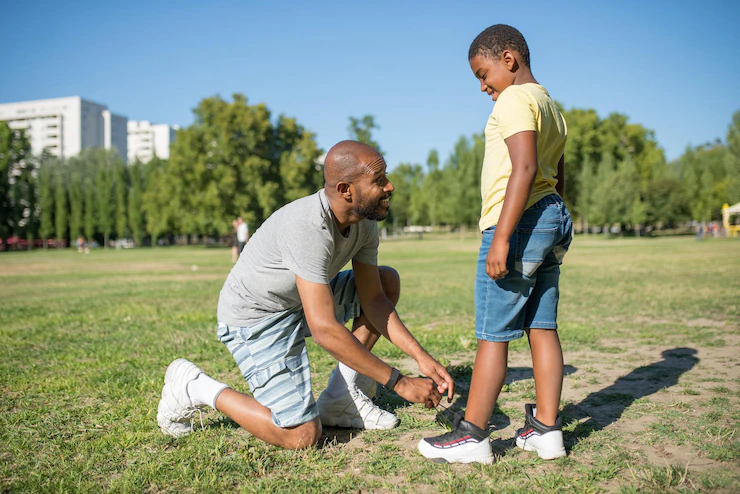Introduction
In recent years, society has witnessed a remarkable shift in parenting roles, with fathers taking on more active and engaged roles in their children’s lives. This cultural phenomenon, known as the rise of involved fatherhood, is challenging traditional gender stereotypes and reshaping the dynamics of modern families. As fathers step beyond their traditional roles as mere breadwinners and disciplinarians, they are forging stronger bonds with their children, promoting gender equality, and redefining what it means to be a father in the 21st century.
Breaking Gender Stereotypes
The concept of involved fatherhood is rooted in the desire to break free from traditional gender stereotypes that have long confined men to the role of distant providers. Historically, fathers were often expected to be the primary breadwinners and were less involved in the day-to-day care of their children. However, with changing social and economic landscapes, these stereotypes are rapidly eroding.
Men are increasingly challenging societal expectations and embracing their nurturing side. They are actively seeking opportunities to bond with their children, participating in activities such as diaper changing, feeding, bathing, and bedtime routines. By doing so, fathers are dismantling the notion that caregiving is solely a mother’s domain, emphasizing that nurturing and emotional support are vital for a child’s healthy development, regardless of gender.
Strengthening Father-Child Bonds
The rise of involved fatherhood has had a profound impact on the relationships between fathers and their children. By being more present and engaged, fathers are establishing stronger emotional connections, fostering trust, and building lasting bonds with their children. This increased involvement is not only beneficial to the child’s well-being but also to the fathers themselves.
Research has shown that children with involved fathers exhibit better social skills, higher self-esteem, and improved academic performance. Additionally, fathers who actively participate in their children’s lives report greater satisfaction, a sense of purpose, and increased overall happiness. This shift in parenting dynamics has allowed fathers to experience the joys and challenges of parenthood on a deeper level, leading to more fulfilling family relationships.
Promoting Gender Equality
The rise of involved fatherhood is also a significant step towards achieving gender equality. By sharing childcare responsibilities, fathers are challenging traditional gender roles and reinforcing the idea that both parents have equal capabilities and responsibilities in raising their children. This shift not only benefits individual families but also contributes to broader societal changes.
Children growing up in households where fathers actively participate in childcare witness firsthand that gender should not limit one’s aspirations or define one’s role in the family. Such experiences promote gender equality from an early age, shaping the expectations and attitudes of future generations. Furthermore, involved fathers serve as positive role models for their children, demonstrating empathy, respect, and equality in their interactions, which helps create a more inclusive society.
The Way Forward
While the rise of involved fatherhood represents significant progress, there are still barriers that need to be overcome. Workplace policies and cultural norms must evolve to accommodate and support fathers in their desire to be more involved in their children’s lives. Flexible work arrangements, extended paternity leave, and increased societal recognition of fatherhood as an equally important role are essential steps towards achieving true gender equality in parenting.
Moreover, it is crucial to acknowledge and celebrate the diverse ways in which fathers contribute to their children’s lives. Fatherhood is not a one-size-fits-all concept, and the rise of involved fatherhood embraces this reality. Whether it is through hands-on caregiving, emotional support, mentorship, or providing a stable and loving environment, fathers play a vital role in shaping their children’s futures.
Conclusion
The rise of involved fatherhood is a transformative social trend that challenges gender stereotypes, strengthens family bonds, and promotes gender equality. As fathers embrace their nurturing roles and actively participate in their children’s lives, they are redefining fatherhood and demonstrating that caregiving is not limited by gender. By continuing to dismantle outdated expectations and advocating for supportive policies, we can build a future where involved fatherhood becomes the norm, benefiting both individual families and society as a whole.










